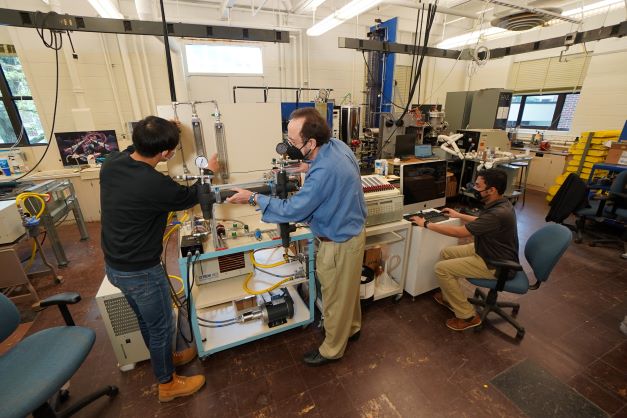
Ford and Purdue University researchers are working to develop a new,
patent-pending charging station cable that “could” combine with in-development vehicle charging technology, to provide “seamless” EV re-charging.
“Today, chargers are limited in how quickly they can charge an EV’s battery due to the danger of overheating. Charging faster requires more current to travel through the charging cable,” said Michael Degner, a senior technical manager at Ford R&D.

Discover B2B Marketing That Performs
Combine business intelligence and editorial excellence to reach engaged professionals across 36 leading media platforms.
“The higher the current, the greater the amount of heat that has to be removed to keep the cable operational.”
Researchers are focusing on an alternative cooling method by designing a charging
cable that can deliver an increased current. The cable uses liquid as an active cooling agent which can help extract more heat from the cable by changing form from liquid to vapour, the key difference between this and current liquid cooled technology.
This innovation could “one day” deliver significantly more power than today’s leading systems to recharge electric vehicles, making the potential of faster recharging times possible if vehicle charging and other technology enhancement is made in parallel.
Ultimately, this could eventually lead to re-charging EVs as quickly as conventional petrol station refuelling, Ford reckons.
“Electric vehicle charging time can vary widely, from 20 minutes at a station to hours on an athome charging station, and that can be a source of anxiety for people who are considering buying an electric vehicle,” said Issam Mudawar of Purdue University.
“My lab has come up with a solution for situations where the amounts of heat that are produced are beyond the capabilities of today’s technology.”
Mudawar said his lab intended to begin testing a prototype charging cable in the next two years to determine more specific charge speeds for certain EVs.






